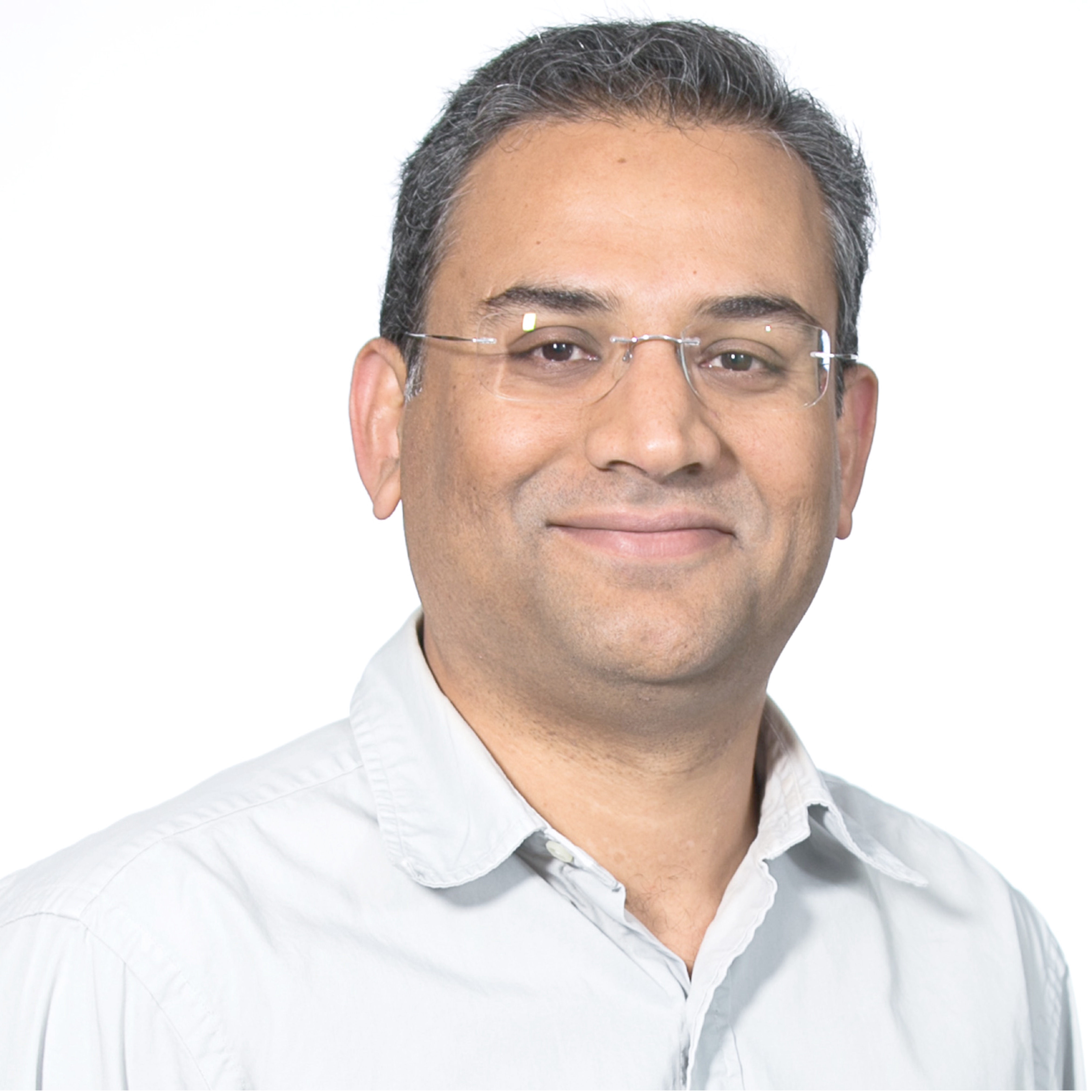Chinmay Trivedi, MD, PhD
By Merin C. MacDonald | Date published: August 14, 2023
August Researcher Spotlight: Chinmay Trivedi, MD, PhD
In this month’s Researcher Spotlight, we highlight the work of Chinmay Trivedi, MD, PhD, professor of medicine and director of cardiovascular medicine research in the Division of Cardiovascular Medicine. He also serves as the director for the Millennium PhD Pathway and Translational Science Program in the Morningside Graduate School of Biomedical Sciences. Dr. Trivedi holds a secondary appointment in Molecular, Cell and Cancer Biology.
Dr. Trivedi’s research focuses on identifying regulatory mechanisms and rational therapies for congenital cardiac and vascular diseases affecting patients. Using murine models and patient samples, his laboratory has identified causal roles of chromatin-modifying enzymes and signaling pathways in congenital cardiac anomalies, lymphatic malformations, lymphedema, chylothorax, hepatic vascular hemangiomas, cardiac valve defects, cardiomyopathies, heart failure, and epithelioid hemangioendothelioma. Many of his findings have opened up new areas of investigation, identified fundamental developmental processes, and informed the development of novel therapies.
Dr. Trivedi is currently the principal investigator on two R01 awards funded by the NIH National Heart, Lung, and Blood Institute. The goal of his first project, “Regulation of Cardiac Development by Chromatin Modifying Enzymes,” is to identify how Hdac3 (histone deacetylase 3) regulates the mesenchymal identity of aortic valvular interstitial cells in both humans and mice. Further, they aim to identify the mechanisms by which different kinases involved in signaling pathways regulate the phosphorylation, function, and chromatin recruitment of Hdac3. Aortic and pulmonic valve defects are the most commonly occurring heart developmental defects in humans. His studies will reveal important molecular mechanisms underlying valve development and disease. His second project, “Epigenetic Regulation of Lymphatic Development,” aims to identify how pathogenic mutations in oncogenes drive lymphatic disease in children. Dr. Trivedi’s laboratory identified oncogenic MAPK signaling activation in patients with lymphangiectasia, abnormal dilation of lymphatic vessels frequently associated with neonatal chylous effusion, immature lungs, and severe respiratory distress with mortality. Improper drainage of extravasated protein-rich fluid from the tissues causes it to accumulate, resulting in chylothorax or lymphedema, the most common lymphatic anomaly and frequently involves defective lymphatic vessels. For the first time, they identified MAPK as an effective pharmacological target for thoracic lymphangiectasia and chylothorax in mice. Ongoing studies will uncover important molecular mechanisms fundamental to lymphatic function and disease. Of this, he says, “Trainees in the lab continue to make fundamental discoveries advancing our knowledge of devastating diseases that affect both children and adults.”
During the last 12 years at UMass Chan, Dr. Trivedi has continued to direct and teach translational courses to first-year medical and PhD students and mentors students, postdoctoral fellows, and junior faculty. He has trained and mentored over 35 individuals at UMass Chan. “My goal is to foster a supportive environment to aid in developing scientific expertise and abilities required to become a successful scientist operating in a translational environment,” says Dr. Trivedi.
Dr. Trivedi is an elected member of the American Society for Clinical Investigation (ASCI) and an elected fellow of the American Heart Association (AHA). He actively contributes to the scientific community through participation in the peer-review process as a deputy editor of Circulation Research and as a standing member of the NIH study section. At the institutional level, he serves on numerous committees at all levels.
Dr. Trivedi earned his medical degree and completed his clinical training at Gujarat University in India. He earned his PhD in molecular, cellular, and developmental biology from the University of South Carolina in Columbia, South Carolina. He completed a postdoctoral fellowship in cardiac and vascular biology at the University of Pennsylvania Perelman School of Medicine under the mentorship of Dr. Jonathan Epstein. Dr. Trivedi joined the faculty at UMass Chan in 2011.
Dr. Trivedi’s contributions as a scientist, mentor, and educator are highly valued. His work continues to have an important impact in the Department of Medicine, at UMass Chan, and in the greater community, and we thank him for his commitment to our mission.
Visit Dr. Trivedi's lab site.
Return to Researcher Spotlights - All

